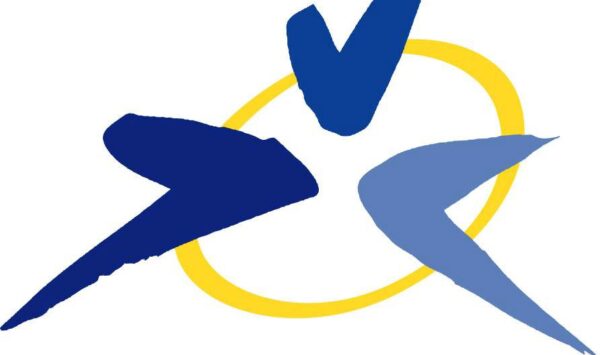Every year the Eurovision Song Contest community gets involved in the same speculations, whether some new countries would be entering the contest. We have looked at some of the most persistent rumours.
To be able to take part in the Eurovision Song Contest, the following criteria for an organisation to get an active EBU membership have to be fulfilled:
“a member country of the International Telecommunication Union (ITU) situated in the European Broadcasting Area as defined by the Radio Regulations annexed to the International Telecommunication Convention, or a member country of the Council of Europe which is situated outside the European Broadcasting Area”
There are also further rules concerning how widely the programs can be received in the member country, that they provide varied programming at their own cost, have full editorial control of the content and are not a sports rights agency in competition with the EBU. Membership applications are handled by the EBU twice a year in January and in July.
Qatar
The story about the gulf state of Qatar wanting to join Eurovision was first published on esctoday.com in 2009. We based that on the information received from the two accredited representants of Qatar Radio. Even if we already then questioned the country’s eligibility, the rumour has lived on with other websites constantly referring to this news piece. The fact is however, that as Qatar if fully outside the European Broadcasting Area, and is not a member of the Council of Europe either, it has never been able to apply for an active membership with the EBU.
Qatar Radio, the home of the weekly Eurovision show, is no longer listed even on the EBU associate members list, as it was in 2009. EBU has however acquired the media rights for the 2022 FIFA World Cup in Qatar.
But: under current rules Qatar cannot join the EBU or the Eurovision Song Contest.
Liechtenstein
Another country constantly in the rumours is Liechtenstein. The country has only had a public broadcaster since 2008, so all previous rumours of participation have been just that, only rumours. Even a French parody song has been used as alleged evidence of previous ambitions to take part. The broadcaster 1FLTV’s CEO Peter Kölbel has repeatedly told various websites that the station has ambitions to become an EBU member, but it has not happened to this date. Either the broadcaster did not fulfil EBU membership criteria, or they have no funds to pay for the membership fees. It is not know whether 1FLTV has even ever broadcast the Eurovision Song Contest.
To be part of Eurovision 2013 Liechtenstein has until the end of July to apply for an active EBU memberships, and also be granted it in time by the EBU.
Kosovo
Kosovo is another constant rumoured future participant at the song contest. However, as Kosovo is not a member of the United Nations, it can’t either be a member of the International Telecommunications Union without the agreement of two thirds of the Union. So until Kosovo becomes a member of ITU it can’t be an EBU member, or participate at Eurovision Song Contest. In 2011 RTK, the public broadcaster of Kosovo had however been allowed to send a contestant to the Eurovision Young Dancers contest in Oslo. The 2012 Albanian entry in Baku was conceived by people with their origins in Kosovo.
Kazakhstan
Kazakhstan has also featured in the rumours, and has according reports even submitted an application to the EBU for an active membership. The contest has been broadcast by a Kazakh broadcaster as well. However as the country is not within the European Broadcasting Area, it could not become a member under current rules. Kazakhstan has however applied for an observer status in the Council of Europe and it seems to be strengthening its ties with Europe. However, before a full membership of the Council of Europe is granted maybe some day in the future, Kazakhstan can’t enter the Eurovision Song Contest or the EBU.
Lebanon
In 2005 Lebanon applied to take part in the Eurovision Song Contest. Aline Lahoud would have represented the country. Eventually Lebanon withdrew, when it could not guarantee that it could show the contest uninterrupted, as the contest rules state. A single online source has claimed the country was also banned for three years, but the most likely penalty would have been losing the participation fee. According to unconfirmed reports online, the EBU has denied that the Lebanese broadcaster would have received a ban.
Palestine
There has also been an effort to get Palestine to participate in the Eurovision Song Contest. The lobbyists have even reportedly approached EBU about active membership, but as long as Palestine is not a member of the required other international organisations it can’t happen. The Palestine Broadcasting Corporation is no longer listed on the EBU associate members list either.
Morocco
After participating once in 1980 Morocco sometimes pops up in the rumour mill too. Last time it happened in 2011, based on one interview comment by the French Head of Delegation Bruno Berberes. He said Morocco might return the next year. The only eligible EBU member in the country SNRT has however denied (according to esckaz.com) any plans to return to the song contest. So unless another Moroccan broadcaster gets an EBU membership the country does not seem to be returning to the contest.
Luxembourg and Monaco
One of the founding members of Eurovision, CLT of Luxembourg is still an active member of the EBU. The broadcaster is now part of the huge German media empire Bertelsmann and operates as RTL in several European countries. In theory Luxembourg could still enter the Eurovision Song Contest. TMC of Monaco is also still a member of the EBU, despite reports of the contrary so the country can also enter the song contest.
EBU member broadcasters, who have never entered the song contest, currently operate in Algeria, Egypt, Jordan, Lebanon, Libya, Tunisia and the Vatican State.




